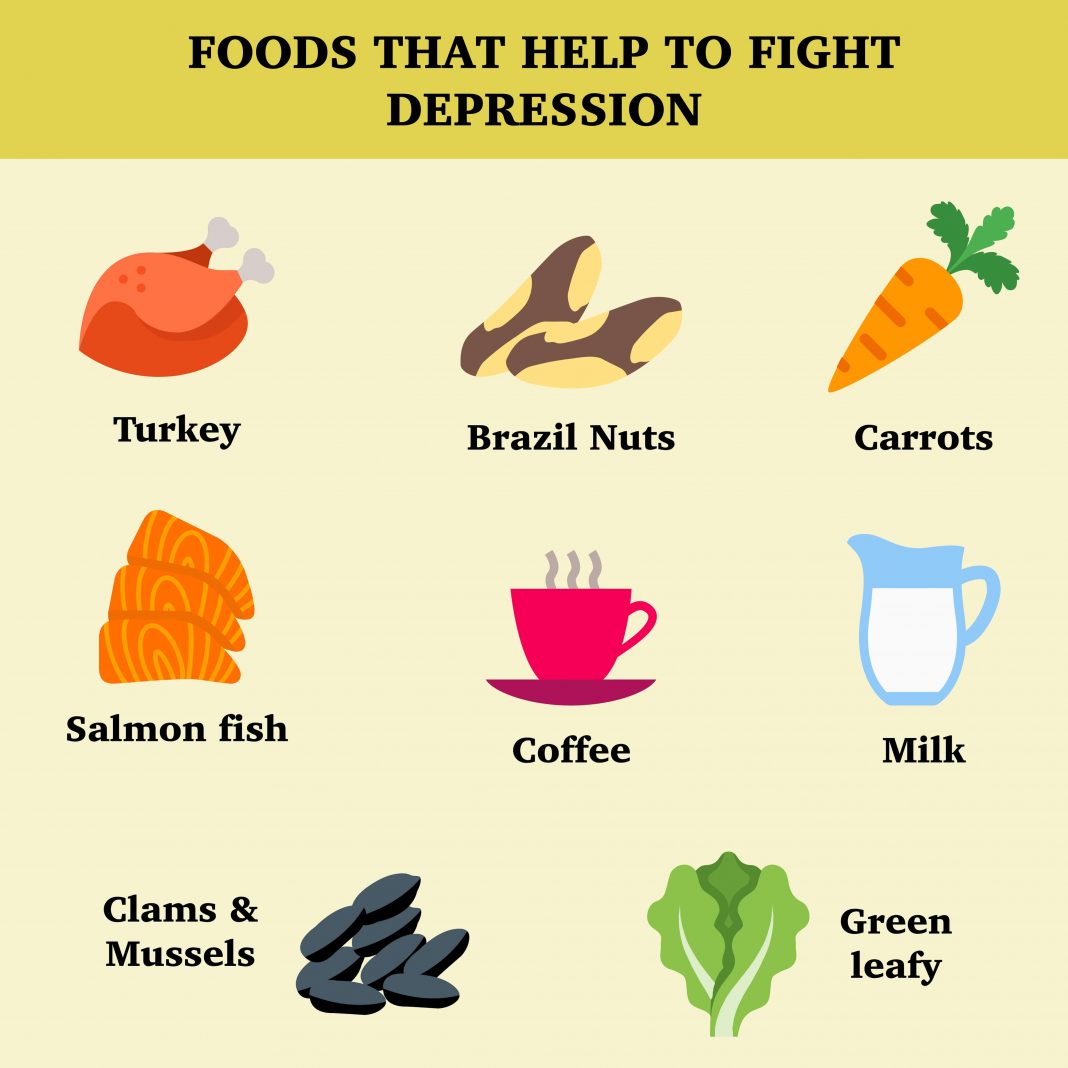One major factor in maintaining a healthy body is making good food choices. Consuming a diet that is rich in fruits, vegetables, whole grains, legumes, low-fat dairy products, and lean meats, poultry, and fish can significantly decrease your risk of physical health issues. What many people do not realise is that a nutritious diet can also protect your mental health. While there is no single nutrient or eating plan that can cure depression, overall good nutrition is crucial for your mental well-being. Including foods that are high in essential vitamins, minerals, complex carbohydrates, protein, and fatty acids is vital for keeping your brain functioning properly.
Essential Nutrients: Your brain, like other organs, responds to the food and drinks you consume. It requires various vitamins, minerals, and other nutrients to stay healthy. Depriving your brain of these essential nutrients can impair its function, increasing the risk of mental health problems. Vitamins and minerals Vitamins and minerals play a crucial role in brain health. Some essential vitamins for the brain include vitamin C, vitamin D, and B vitamins. Additionally, minerals such as magnesium, selenium, and sinc are also essential for proper brain function.
Complex Carbohydrates: Carbohydrates serve multiple purposes in nourishing the brain. At a basic level, the brain relies on glucose for energy, which is derived from carbohydrates in the diet. Carbohydrates also stimulate the production of serotonin, a neurotransmitter responsible for feelings of contentment. Instead of consuming sugary and processed grains, it is recommended to choose complex carbohydrates found in fruits, vegetables, and whole-grain foods. These carbohydrates are converted into glucose at a slower rate, providing a more stable and consistent source of fuel for the brain.
Amino Acids: Amino acids are the building blocks of protein and are crucial for the production of neurotransmitters in the brain. These chemical messengers carry signals between nerve cells, influencing emotions and behaviors. For instance, serotonin, responsible for feelings of contentment, is made from the amino acid – tryptophan. Dopamine, which helps with motivation, is derived from the amino acid phenylalanine. The body absorbs these amino acids from the foods we eat.
Fatty Acids: Fatty acids, specifically omega-3 and omega-6, are crucial for brain health. A significant portion of the brain is made up of fat, and these essential fatty acids cannot be produced by the body and must be consumed through diet. It is recommended to maintain a balance of both omega-3 and omega-6 fatty acids in the diet. However, the typical Western diet tends to have excessive amounts of omega-6 and insufficient amounts of omega-3, which can have negative effects on mental health. Water Lastly, water is a vital nutrient for the brain. It makes up the majority of brain mass, and even mild dehydration can lead to symptoms such as irritability and difficulty concentrating.
Recommended Foods To support proper brain function, it is essential to consume a variety of foods that are rich in essential nutrients, including vitamin C, vitamin D, B vitamins, magnesium, selenium, zinc, complex carbohydrates, tryptophan, phenylalanine, omega-3 fatty acids, and omega-6 fatty acids. These nutrients can be found in a variety of foods such as citrus fruits, leafy green vegetables, salmon, cod, eggs, nuts, seeds, whole grains, and legumes.
Foods to Avoid To maintain good brain health, it is recommended to avoid or limit caffeinated and alcoholic beverages, sugary foods, deep-fried foods, and refined and processed foods. These types of foods are generally low in brain-healthy nutrients and can increase the risk of physical and mental health problems.
Driving home the point: Eating well is crucial not only for physical health but also for mental well-being. Incorporating a variety of fruits, vegetables, whole grains, low-fat dairy products, and lean meats, poultry, and fish into the diet can help maintain good health and energy. Along with regular exercise and sufficient sleep, a well-balanced diet can greatly benefit mental well-being.




